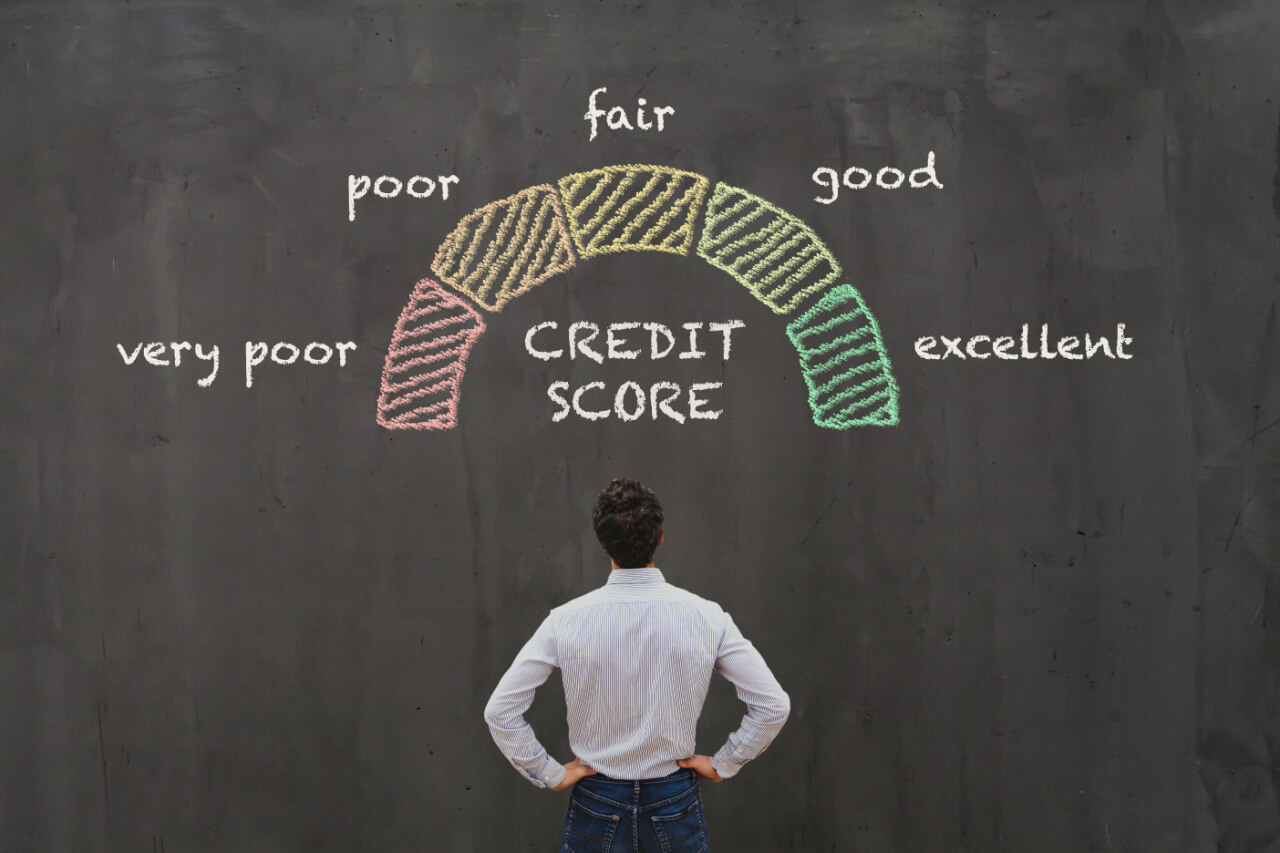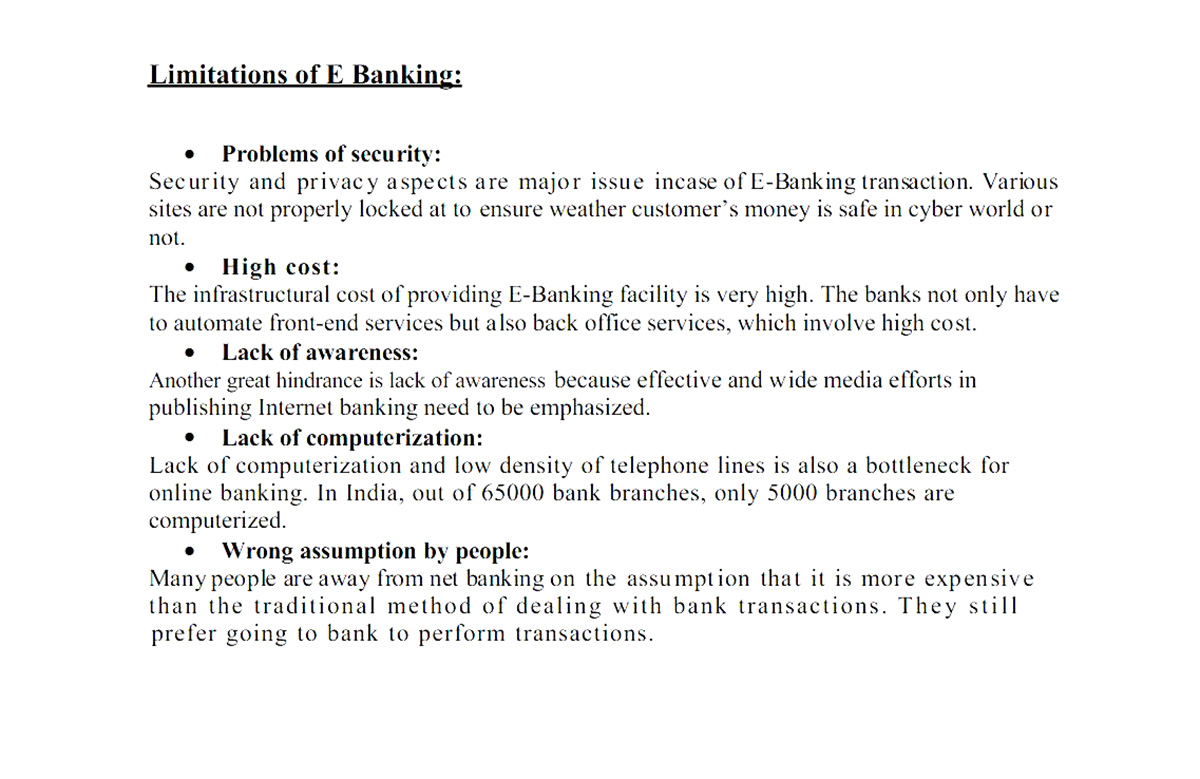Home>Finance>How Long Can Revolving Credit Negatively Affect You?


Finance
How Long Can Revolving Credit Negatively Affect You?
Published: February 29, 2024
Learn how revolving credit can impact your finances negatively and how to manage it effectively. Get expert tips and insights on handling revolving credit responsibly.
(Many of the links in this article redirect to a specific reviewed product. Your purchase of these products through affiliate links helps to generate commission for LiveWell, at no extra cost. Learn more)
Table of Contents
Introduction
Revolving credit is a crucial component of the modern financial landscape, offering individuals and businesses a flexible way to access funds. When managed responsibly, revolving credit can provide a convenient means of making purchases and managing cash flow. However, it's essential to grasp the potential long-term implications of revolving credit on your financial well-being, particularly its impact on your credit score.
Understanding the nuances of revolving credit and its influence on your financial health is paramount for making informed decisions about borrowing and managing debt. In this article, we will delve into the intricacies of revolving credit, explore the factors that can affect your credit score, and examine the long-term effects of revolving credit on your financial standing. By gaining a comprehensive understanding of these concepts, you can empower yourself to make prudent financial choices and mitigate the potential negative consequences of revolving credit.
It's important to recognize that while revolving credit can be a valuable financial tool, it also carries inherent risks, especially if mismanaged. By shedding light on the lasting impact of revolving credit on your financial outlook, we aim to equip you with the knowledge needed to navigate the complexities of credit utilization effectively. Let's embark on a journey to unravel the mysteries of revolving credit and uncover the strategies for harnessing its benefits while safeguarding your financial stability.
Understanding Revolving Credit
Revolving credit represents a flexible form of borrowing that allows individuals to repeatedly access funds up to a predetermined credit limit. Unlike installment loans, which involve borrowing a specific amount and repaying it in fixed installments over a predetermined period, revolving credit permits borrowers to utilize funds as needed, with the option to carry a balance from month to month. Common examples of revolving credit include credit cards and lines of credit.
With revolving credit, borrowers have the freedom to choose how much of their available credit they wish to use at any given time, as well as how much to repay. This flexibility offers a level of convenience and adaptability that is not typically found in traditional installment loans. However, it also necessitates responsible financial management to avoid accumulating excessive debt and incurring high-interest charges.
One of the key features of revolving credit is the revolving nature of the debt. As payments are made, the available credit is replenished, allowing borrowers to borrow again up to the established credit limit. This revolving cycle distinguishes revolving credit from other forms of borrowing and underscores the importance of maintaining a healthy balance between credit utilization and timely repayments.
Understanding the mechanics of revolving credit is essential for making informed borrowing decisions and managing debt effectively. By comprehending the dynamics of revolving credit, individuals can navigate the borrowing process with greater confidence and prudence, thereby mitigating the potential risks associated with this form of credit.
Factors Affecting Credit Score
Several key factors play a significant role in determining an individual’s credit score, which is a numerical representation of their creditworthiness. Understanding these factors is crucial for anyone seeking to maintain a healthy credit profile and secure favorable terms for borrowing. While the specific algorithms used to calculate credit scores may vary among credit reporting agencies, certain common elements consistently influence these scores.
- Payment History: One of the most influential factors in determining a credit score is an individual’s payment history. Timely payments on credit accounts, including credit cards and loans, contribute positively to the credit score, while late or missed payments can have a detrimental impact.
- Credit Utilization: The proportion of available credit that a borrower utilizes, known as credit utilization, is another critical factor. High credit utilization, especially on revolving accounts, can signal financial distress and negatively affect the credit score.
- Length of Credit History: The length of time that credit accounts have been active plays a role in determining credit scores. A longer credit history can provide a more comprehensive picture of an individual’s borrowing behavior and financial management skills.
- New Credit Inquiries: Applying for multiple new credit accounts within a short period can raise concerns about financial instability and may lead to a temporary dip in the credit score.
- Credit Mix: Lenders typically prefer to see a diverse mix of credit types, such as credit cards, installment loans, and mortgages, in an individual’s credit history. A well-managed combination of credit accounts can positively influence the credit score.
By comprehending the factors that impact credit scores, individuals can take proactive steps to manage their finances in a manner that fosters a positive credit profile. This understanding empowers individuals to make informed decisions about borrowing, debt management, and overall financial health, ultimately contributing to greater financial stability and access to favorable credit terms.
Impact of Revolving Credit on Credit Score
Revolving credit can exert a significant influence on an individual’s credit score, primarily through its impact on credit utilization and payment history. As a fundamental component of credit scoring models, credit utilization reflects the proportion of available credit that a borrower has used. High credit utilization, particularly on revolving accounts such as credit cards, can raise red flags for lenders and lead to a lower credit score.
When individuals consistently carry high balances on their revolving credit accounts relative to their credit limits, it can signal financial strain and an increased likelihood of potential default. This can result in a negative impact on their credit scores, as it may be interpreted as an inability to manage debt responsibly. Therefore, maintaining a low credit utilization ratio, ideally below 30% of available credit, is generally advisable to help preserve a healthy credit score.
Furthermore, the payment history associated with revolving credit accounts significantly influences credit scores. Timely payments on credit card balances and other revolving credit obligations can bolster a borrower’s credit score, demonstrating responsible financial behavior. Conversely, late or missed payments on revolving accounts can lead to adverse effects on the credit score, as they indicate potential financial distress and an increased credit risk.
It’s important for individuals to recognize that while revolving credit offers flexibility and convenience, its management can profoundly impact their credit scores and overall financial well-being. By maintaining low credit utilization, making on-time payments, and managing revolving credit responsibly, individuals can help safeguard their credit scores and enhance their creditworthiness in the eyes of lenders.
Understanding the intricate relationship between revolving credit and credit scores empowers individuals to make informed decisions about their borrowing habits and financial management practices. By proactively managing their revolving credit accounts, individuals can strive to maintain a positive credit profile and secure improved access to credit options and favorable terms in the future.
Long-Term Effects of Revolving Credit
The long-term effects of revolving credit can significantly shape an individual’s financial trajectory, influencing their creditworthiness, borrowing capabilities, and overall financial well-being. When managed prudently, revolving credit can serve as a valuable tool for accessing funds and building a positive credit history. However, mismanagement of revolving credit can lead to enduring consequences that impact financial stability over time.
One of the enduring effects of revolving credit pertains to its impact on an individual’s credit score. As mentioned earlier, high credit utilization and a history of late or missed payments on revolving credit accounts can contribute to a lower credit score. This diminished credit score may persist over the long term, affecting the individual’s ability to secure favorable loan terms, obtain competitive interest rates, and access various financial products.
Furthermore, the accumulation of high levels of revolving debt can lead to a cycle of financial strain, as interest charges accrue, and the burden of debt repayment grows. This can impede an individual’s capacity to achieve key financial milestones, such as saving for retirement, purchasing a home, or funding education expenses. Over time, the persistent impact of revolving credit mismanagement can hinder overall financial progress and limit opportunities for wealth accumulation.
Moreover, the long-term effects of revolving credit mismanagement extend beyond individual financial implications and can permeate other aspects of life. A diminished credit score may affect employment opportunities, rental housing prospects, and insurance premiums, amplifying the far-reaching consequences of sustained financial challenges resulting from revolving credit mismanagement.
Conversely, individuals who effectively manage their revolving credit accounts can experience enduring positive effects, such as a bolstered credit score, improved access to credit, and enhanced financial flexibility. By maintaining low credit utilization, making on-time payments, and using revolving credit responsibly, individuals can cultivate a solid foundation for long-term financial well-being and position themselves favorably in the financial marketplace.
Understanding the lasting repercussions of revolving credit underscores the importance of prudent financial management and informed decision-making. By recognizing the potential long-term effects of revolving credit, individuals can take proactive steps to mitigate risks, cultivate a positive credit profile, and pave the way for sustained financial stability and prosperity.
Managing Revolving Credit
Effectively managing revolving credit is essential for maintaining a healthy credit profile and minimizing the potential long-term repercussions of credit mismanagement. By implementing sound financial practices, individuals can harness the benefits of revolving credit while mitigating the associated risks. Here are several strategies for managing revolving credit responsibly:
- Monitor Credit Utilization: Regularly assess the utilization of revolving credit accounts to ensure that balances remain well below the credit limits. Keeping credit utilization low, ideally below 30% of available credit, can help preserve a positive credit score and signal responsible debt management to potential lenders.
- Make Timely Payments: Consistently make on-time payments for revolving credit obligations, such as credit card bills. Timely payments demonstrate financial reliability and contribute to a positive payment history, bolstering the individual’s credit score.
- Avoid Carrying High Balances: Strive to minimize the accumulation of high balances on revolving credit accounts. Carrying excessive debt can lead to increased interest charges and financial strain, potentially hindering long-term financial goals.
- Review Statements Regularly: Routinely review credit card and revolving credit account statements to identify any unauthorized charges, errors, or signs of potential fraud. Promptly addressing discrepancies can safeguard the individual’s financial security and prevent negative impacts on credit.
- Consider Credit Limit Increases Carefully: While higher credit limits can offer greater financial flexibility, individuals should carefully evaluate the implications of requesting credit limit increases. Elevated credit limits can affect credit utilization ratios and necessitate disciplined spending habits to avoid excessive debt accumulation.
- Strategically Manage Multiple Accounts: For individuals with multiple revolving credit accounts, strategic management is crucial. Balancing credit utilization across accounts and maintaining timely payments on all obligations can contribute to a positive credit profile.
By adhering to these prudent practices, individuals can take proactive steps to manage their revolving credit effectively and mitigate the potential long-term effects of credit mismanagement. Cultivating responsible financial habits and maintaining a vigilant approach to revolving credit can foster a solid foundation for sustained financial well-being and enhanced creditworthiness.
Conclusion
Revolving credit, with its inherent flexibility and convenience, plays a pivotal role in the modern financial landscape. Understanding the nuanced impact of revolving credit on individuals’ financial well-being is essential for navigating the complexities of borrowing and debt management. By delving into the intricacies of revolving credit and its influence on credit scores, individuals can equip themselves with the knowledge needed to make informed financial decisions and safeguard their long-term financial stability.
The factors affecting credit scores, such as payment history, credit utilization, and credit mix, underscore the significance of responsible financial management. Individuals can leverage this understanding to proactively manage their revolving credit accounts, cultivate positive credit profiles, and enhance their creditworthiness in the eyes of lenders.
Moreover, recognizing the enduring effects of revolving credit mismanagement highlights the importance of prudent financial practices. By monitoring credit utilization, making timely payments, and avoiding the accumulation of high balances, individuals can mitigate the potential long-term repercussions of credit mismanagement and position themselves for sustained financial prosperity.
Ultimately, managing revolving credit responsibly demands a proactive and disciplined approach. By implementing sound financial strategies, individuals can harness the benefits of revolving credit while mitigating the associated risks. Through vigilance, informed decision-making, and prudent financial habits, individuals can cultivate a solid foundation for long-term financial well-being and access improved opportunities in the financial marketplace.
As individuals navigate the intricacies of revolving credit, they are empowered to make informed choices that align with their financial goals and aspirations. By embracing the principles of responsible credit management, individuals can pave the way for enduring financial stability and enhanced access to credit options, ultimately shaping a brighter financial future.














